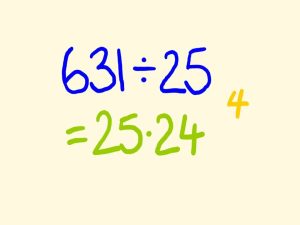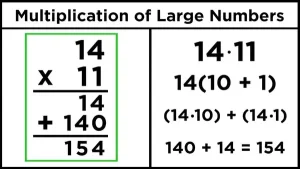Math is important.
Math is not just a subject, it’s also a language we use to navigate our world. Math is a vital part of our daily lives, from calculating change in the store to analyzing statistics in sports we love. Many students struggle with math. Mastering math, whether you are dealing with fractions or functions can lead to academic success and new career opportunities.
We’ll dive in to some useful tips and tricks to make your math journey more enjoyable and smooth. As we explore the best strategies to conquer this fascinating field, you can say goodbye to confusion and welcome clarity.
Understanding the basics: addition, subtraction and multiplication
Addition, subtraction and multiplication are the four basic operations that make up math. These four basic operations form the basis for all other mathematics.
Addition is a matter of combining numbers. Imagine putting pieces together to get the full picture. Subtraction involves subtracting or finding the difference in numbers. It’s the same as removing a piece from your collection.
Multiplication is a repeated addition. If you have three groups each of four apples, you can multiply 3 x 4.
Divide a number to equal parts. Divide twelve cookies equally among four friends, and each will receive three cookies. This is because 12 / 4 equals 3.
Before moving on to more complicated math concepts, it is important that you master these basic operations.
Mental math tricks to master
Mental math can change your academic life. It improves accuracy and speed, which makes calculations easier.
Breaking numbers into smaller parts is an effective trick. When multiplying 14 by 6 think of it like (10 x 6) plus (4 x 6) This greatly simplifies the calculation.
Visualization plays a crucial role too. Use your fingers to count or draw numbers on a line. This technique helps make abstract concepts tangible.
You can also improve your skills by practicing with patterns. Remember that multiplying nine times gives you results with digits totaling nine, like 9×3 = 27 (2+7=9).
Play games or puzzles that test your brain’s ability to handle numbers. You’ll improve your mental calculation skills the more you practice.
Word problems: Strategies to solve them
Word problems are tricky but can be solved with the right strategy. Read the problem very carefully. Spend some time understanding the question.
Highlight or underline important information. You can use keywords, numbers and units to find the mathematical operations you need, such as “total,” “difference,” and “product.”
Visualizing the problem is helpful. If applicable, draw a diagram or sketch to clarify relationships and make the data easier to digest.
Divide the problem into smaller pieces. Take on one piece at a time rather than trying to solve the whole problem at once.
Double-check that your answer makes sense within the context of the question. This step helps to build confidence and reinforces your understanding of the problem.
Techniques for memorizing equations and formulas
There are many ways to help you memorize formulas and equations. Mnemonics are a popular way to remember formulas and equations. Create a rhyme, acronym or phrase that captures the essence.
Visual aids are also helpful. You can also use colorful flashcards to write out the formulas. These cards are more memorable when they’re created, and their vibrant colors help to reinforce the memory.
A second technique is to practice at different intervals. Review your formulas in increasing intervals. This method helps to transfer short-term knowledge into long-term memory.
Your understanding can be strengthened by teaching someone else. Clarity is required when you explain concepts out loud. This helps to strengthen your understanding.
This personal connection will help you remember information more easily when it comes to exams or assignments.
Practice makes perfect – Tips to improve math skills
When it comes to mastering math, consistency is the key. Every day, set aside time to practice. Even 20 minutes a day can make a big difference.
You can use interactive tools like apps or online platforms. These tools can provide immediate feedback and help you to identify areas that need improvement.
Break complex problems down into smaller pieces. This makes complex problems less intimidating and clarifies your thinking process.
Study sessions in groups can also be very beneficial. Explaining concepts with peers can help you understand them better and expose you to other perspectives on problem solving.
Maintain a math journal to keep track of your progress. Document the challenges you face and strategies you have found to be effective over time.
Do not be afraid of making mistakes. They are valuable opportunities to learn. Accept them as part your journey to becoming proficient in math.
How to overcome math anxiety and build confidence in your math abilities
It’s possible to overcome math anxiety. Recognize your feelings, and understand that you are not alone.
Relaxation techniques can be used to prepare for math problems. Visualization or deep breathing can calm racing thoughts.
Build confidence by setting small, attainable goals. Celebrate every milestone, no matter how small. These victories will reinforce your abilities.
Support your peers by engaging in conversation. Study groups can be a great way to get motivated and learn new ways of solving problems.
Making mistakes is part and parcel of learning. Every mistake teaches you valuable lessons and helps to improve your skills.
Remember that math is no different from any other subject. Practice makes progress. Accept the challenge and not see it as a threat. Your confidence will grow over time.
The conclusion of the article is:
Mathematical skills are not limited to the classroom. Math is a vital part of our everyday lives. From budgeting to solving problems, it plays an important role. Students can improve their math skills by mastering the fundamental concepts and using helpful tricks.
You can build a strong foundation by understanding the basics. Addition, subtraction and multiplication aren’t just abstract concepts. They are also tools to help you navigate life’s challenges. Once you understand the basics, it becomes easier to tackle more complex math.
Mental math can change the game. Quick calculations can help you make better decisions and lessen your reliance on calculators in exams or other real-life situations. These shortcuts should be practiced regularly until they are second nature.
The narrative style of word problems can intimidate students. Breaking them into smaller parts makes it easier to find solutions. This strategic approach will help you better understand the question.
It may seem difficult to memorize formulas and equations, but mnemonics can make the process easier –and even more fun! Create rhymes and visual aids to make learning more interactive.
It is important to study efficiently if you want to improve your math skills. Consistency is better than cramming. If you need to, use online resources or tutoring sessions. They can help clarify your understanding and provide further clarity.
Many students are afraid of failing or overwhelmed by the difficulty level presented in classwork. Acknowledge small successes along the way to build confidence. Celebrate each success as a step toward mastery.
These tips will help you grow not only academically, but personally too. You’ll learn resilience over time through challenges without losing sight the fun that comes with numbers! It’s not necessary to fear math. It’s just another language that’s waiting to be learned.




